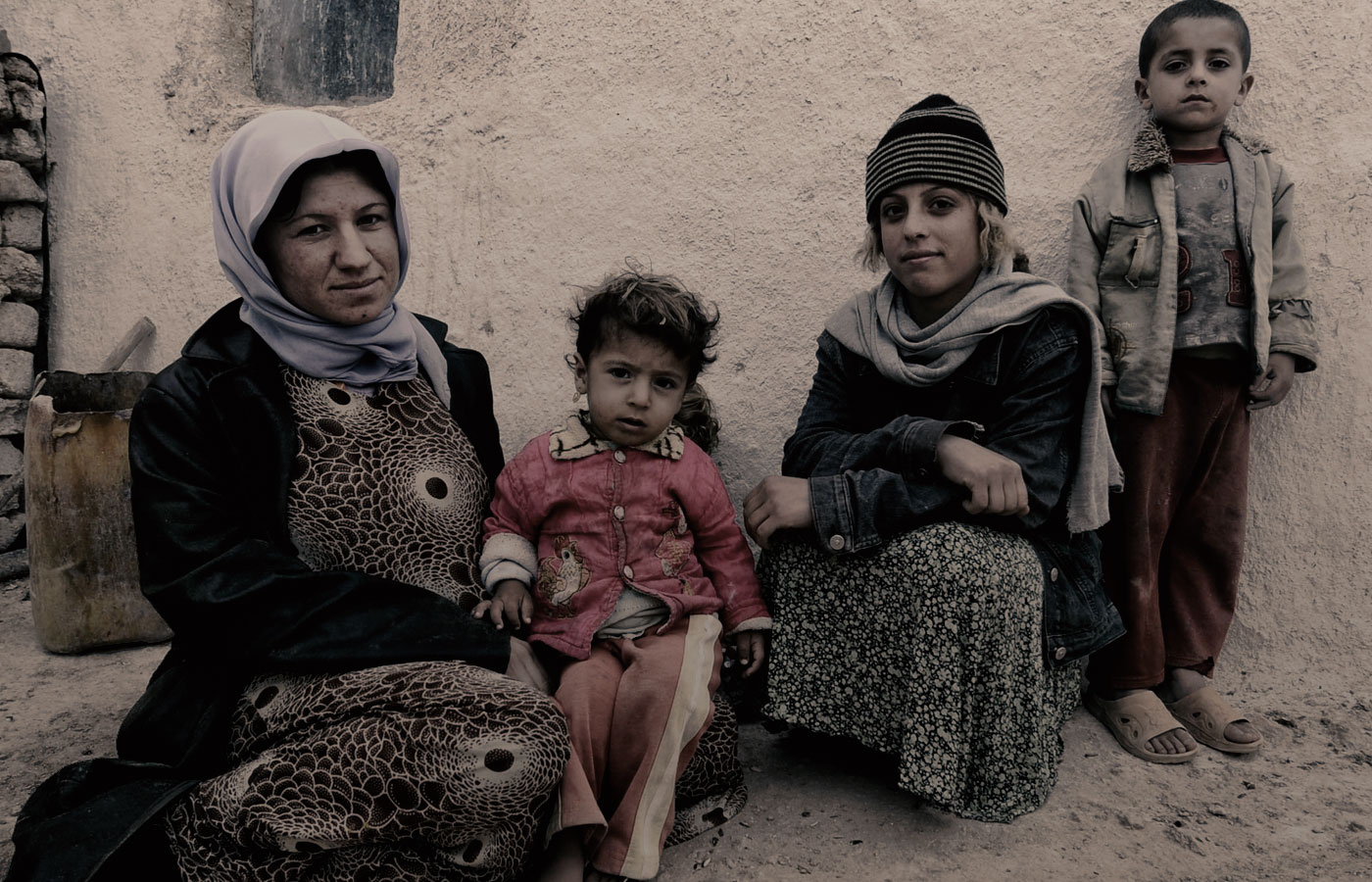My friend Abeer is a former refugee from Iraq. An Orthodox Christian, Abeer fled from Islamic State, fearing for her personal safety as churches in her neighbourhood were being burned down. Abeer’s family was resettled in the United States, where we met through a refugee friendship program. Their children and ours became friends immediately.
In Iraq Abeer was a scientist, and her husband was an engineer, but here in Houston, Texas, they have settled for whatever hourly-wage jobs they can find to support their children and give them a life they can no longer aspire to for themselves. They join the tens of millions like them who have left behind home, livelihood, and life as they knew it in hopes for a fresh start. Abeer’s story is more common than we would like to imagine.
28,000 people are being forcibly displaced every day
An unprecedented global problem
According to the United Nations High Commissioner for Refugees (UNHCR), we live in a time where more than 28,000 people are being forcibly displaced every day. Over 65 million persons—roughly the population of the United Kingdom—have fled their homes.
One third of those (22 million) are classified as ‘refugees’, people outside their country of origin who are ‘unable or unwilling to return to [their] country of origin owing to a well-founded fear of being persecuted for reasons of race, religion, nationality, membership of a particular social group, or political opinion’.[1] Today’s refugee crisis is the worst humanitarian crisis since World War II, surpassing what was then the largest mass human displacement in history.
One-quarter of all refugees today are Syrian, with half of its pre-war population killed or forced from their homes in just the past six years.
The majority of refugees are women and children, with one half under the age of 18. Millions of refugees have lived in protracted situations, waiting decades for resolution. One-quarter of all refugees today are Syrian, with half of its pre-war population killed or forced from their homes in just the past six years.[2]
Many have wondered at the causes of this sudden surge in forced migration. War and conflict—especially long-standing wars—are the primary causes, but there are other factors:
- Faced with economic deprivation, workers move in search of opportunity.
- Natural disasters and environmental degradation can cause large-scale displacement, especially when exacerbated by political tensions.
- Persecution forces people out of their homelands in search of safety and freedom.
In our connected world, we not only have more knowledge about these situations, but we are also more directly affected by them. Faced with this global phenomenon, how are Christians to respond?
Charity and hospitality
The Bible commands charity and hospitality to strangers and sojourners, as well as care for the distraught and downtrodden. Therefore, people who follow Jesus and take his Word seriously have a special mandate to address the refugee crisis. However, the complexities of the refugee system and concerns over national security often overshadow the call to justice and mercy. In fact Christians are among those calling for their countries to close their doors to immigrants.
people who follow Jesus and take his Word seriously have a special mandate to address the refugee crisis.
Nowhere is this perhaps more ironic than in the United States, which has long taken pride in its identity as a land that was founded by refugees seeking religious freedom. As the ‘land of the free, home of the brave’, we resettle more refugees every year than any other country. Our national icon, the Statue of Liberty, has this welcoming inscription on its pedestal:
Give me your tired, your poor,
Your huddled masses yearning to breathe free,
The wretched refuse of your teeming shore.
Send these, the homeless, tempest-tost to me,
I lift my lamp beside the golden door!
Nevertheless, the US immigration debate rages over undocumented immigrants, refugees, and Muslims, with our president implementing travel bans and setting a historically low refugee admissions cap for fiscal year 2018. Amid this storm, American Christians find themselves politically and ethically divided on this controversial subject.

Regardless of where one stands on immigration, Christians should acknowledge that they have a role to play in what is the primary humanitarian issue of our day. Where do we start? I suggest we begin with our imagination.
Forming our imagination of the stranger
When you hear ‘refugee’ what images or words spring to mind? Is it a bedraggled woman in hijab wading to shore? A dirt-caked child sitting in a dilapidated desert tent? Or is it a scientist who developed the theory of relativity? An award-winning artist? A philanthropist?
Our mental picture of who a refugee is affects our attitudes towards them. Since the first international effort to address the refugee crisis of the early 1900s, citizens have expressed concern about immigrants’ impact on local culture and economy; refugees are strangers, often not speaking the local language and not knowing local customs and ways. In recent years, national security has been at the forefront when weighing compassion for the world’s most vulnerable people against protecting one’s own, making resettlement seem risky, even foolish, for some. The acceleration of technologies of mass destruction and information infiltration makes it all the more threatening.
Biblically informing our imagination of the stranger
Even though our human nature makes us wary of strangers, there are times when God calls us instead to embrace the stranger. To do that we must allow God to shape our imagination of who the stranger is, especially as ‘welcome the stranger’ is one of the most oft-repeated commands in the Hebrew Scriptures.
Strangers among the Israelites were to be treated with equality, like natives of the land (Num 15:15-16). Israel played host to foreign guests and was expected to protect, serve, love, and provide for them (Lev 19:34, Deut 26:12, Ezek 47: 21-23). God decreed that strangers were entitled to his love and concern, so caring for refugees today is not merely a compassion or pity issue—it is a justice issue.
Many refugees are Christians being persecuted for their faith, making them our brothers and sisters in the Lord, and thus family members.
Many refugees are Christians being persecuted for their faith, making them our brothers and sisters in the Lord, and thus family members. When these refugees come, they change the landscape, not just of our nations, but also of our churches. In significant ways churches are being revitalized by refugees.[3]
Every Christian, besides belonging to the global Christian family, also belongs to another family—the global human family.[4] With over 7 billion people on the globe today, we must remember that we all belong to the same human family. This perspective humanizes refugees, reminding us that they are more than statistics—they are people made in the image of God, deserving of our compassion and protection.
You once were strangers
Finally, perhaps the most compelling argument for caring for refugees is that, like them, we are sojourners. From patriarch Abraham to Jesus and his disciples to the global church, the sojourner metaphor is deeply embedded within our history and theology, and thus our very identity:

- God chose to bless Abraham by turning him into a sojourner, not as a punishment but as part of God’s plan for the salvation of the nations (Acts 7:6).
- Before Christ, the nations were separate from Christ (Eph 2:12), but then God adopted us into his family through Jesus Christ and we are ‘no longer strangers and aliens’ (Eph 2:14, 2:19).
The stranger motif also describes our relationship to our heavenly home. Like refugees, all we who are in Christ are considered sojourners, aliens, and pilgrims on earth (1 Chron 29:15, Heb 11, 1 Pet 1:17). Yet as strangers and exiles we are not aimless; we are just waiting for a better country—a heavenly one (Heb 11:16); and so we fix our eyes on heaven, where our true citizenship lies: ‘Our citizenship is in heaven, and from it we await a Savior, the Lord Jesus Christ’ (Phil 3:20). In some ways, we can relate to refugees because we, too, have no permanent home in this life. We are on a shared journey, equals in the eyes of the Lord, all dependent upon his grace.
The response of the globally-minded church
In light of the magnitude of the refugee crisis, churches around the world will need to know how to address trauma and identity in an increasingly globalized society. Globally-minded Christians would do well to embrace a global identity combined with a doctrine of hospitality. This perspective should inform the way we view government immigration policies, especially with respect to refugees.
The term ‘refugee’ has often been applied generically to various types of migrants affected by any negative push factor, whether economic or environmental. However, when discussing the global migration phenomenon, the term pertains specifically to those fleeing war or persecution and who can substantiate the danger of returning or staying home, as we saw above.
Refugees are especially vulnerable because they do not leave by choice; once outside the borders of their country, they lose whatever protections of citizenship they had and are at the mercy of (and entitled to the assistance of) the international protection regime. While biblical hospitality needs not distinguish between persons, refugees do make an especially compelling case for hospitality and mercy.
When we are able to use our biblical imagination to view refugees, we come to realize that we have often let patriotism and fear override faith and action, and we come to believe that we experience God through hospitality offered to strangers. This spiritual reality challenges us to view refugees, not as a burden, but as an asset to our communities, and to view immigration issues as moral issues, not just economic and political ones. Seminary professor Christine Pohl writes:
Reception of refugees is one of the few places in modern politics where the explicit language of hospitality is still used. People continue to connect theological notions of sanctuary, cities of refuge, and care for aliens with the needs of today’s displaced people. Christians have a vital role in making sure that the needs of refugees are taken seriously by national governments. But our response must extend beyond public policy to more personal involvement in voluntary agencies, communities, churches, and homes where acts of welcome offer refuge and new life to some of the world’s most vulnerable people.[5]
When churches are informed, they have an opportunity to dispel fears and empower their communities for engagement.
We can extend this welcome through typical hospitality of meals and fellowship, but also through advocacy and education. Much of the fear surrounding the refugee crisis is based on misinformation. When churches are informed, they have an opportunity to dispel fears and empower their communities for engagement.
Refugees are persecuted because of race, religion, nationality, and social or political affiliation. May we who follow Christ embrace refugees without regard to those categories. We have a tremendous opportunity to share the love of God and light of Christ to people from far-away lands who otherwise might not receive such ministry. Holocaust survivor Elie Wiesel praised the ‘righteous Gentiles’ who risked their lives protecting Jewish refugees. For Christians, walking with uprooted people through the process of restoring their lives is a vicarious act of grace, for we, too, were once strangers.
Endnotes
- Official definition of the United Nations High Commissioner for Refugees; for example, see http://www.unhcr.org/afr/publications/brochures/3b779dfe2/protecting-refugees-questions-answers.html.
- See article entitled, ‘The Refugee and the Body of Christ’, by Arthur Brown in the September 2016 issue of Lausanne Global Analysis. https://lausanne.org/content/lga/2016-09/the-refugee-and-the-body-of-christ.
- See article entitled ‘Is God Reviving Europe Through Refugees?’ by Sam George in the May 2017 issue of Lausanne Global Analysis. https://lausanne.org/content/lga/2017-05/god-reviving-europe-refugees.
- For reflection on global identity, see Todd M. Johnson and Cindy M. Wu, Our Global Families: Christians Embracing Common Identity in a Changing World (Grand Rapids: Baker Academic, 2015).
- Christine Pohl, Making Room: Recovering Hospitality as a Christian Tradition (Grand Rapids: Eerdmans, 1999), 166.

